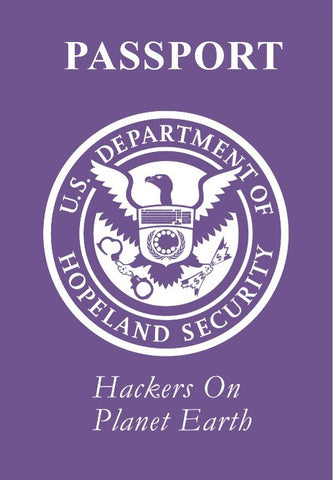
HOPE Number Nine (2012): "Technology to Change Society: What Not to Do" (Download)
Friday, July 13, 2012: 11:00 am (Sassaman): Many of us in the hacker/maker communities have a powerful desire to change society by sharing the technologies we're passionate about with those around us. We're convinced that our way of thinking can lead people to liberation, empowerment, and better lives. But it doesn't always work the way we hope. While some technologies support change in certain situations - Twitter and mobile devices in the Middle East and Africa, the printing press and democracy - history is littered with failed technology-driven plans to change the world. This is where programmers can take a page from social research and history. There is not, in fact, consensus in the research that "technology teaches itself" or "code is law." Society is a complex system (people are complex systems!) and overly simplistic beliefs that technology has one universal kind of impact on its users can doom well-intentioned efforts to help others use technology. What do we need to know about society and how technology changes it in order to be successful?
In this panel, Gus Andrews will share some basic rules from research on education, political movements, and social change which everyone who wants to write code to change the world should know. Christina Dunbar-Hester will share cases of activist technical interventions that illustrate the complexity of success or failure, and how inseparable social and technical elements can be. Chris Anderson will do a postmortem of some past projects to change journalism with technology, including the Independent Media Center, discussing their successes and failures. And Matt Curinga will talk about his work to develop a degree in open technology and education at Adelphi University: what he's doing to convince administrators that FOSS technology is important enough to merit its own program, what challenges he faces in talking to educators, and the things in his plan of study which he thinks are most important for politically conscious tech developers to know.
In this panel, Gus Andrews will share some basic rules from research on education, political movements, and social change which everyone who wants to write code to change the world should know. Christina Dunbar-Hester will share cases of activist technical interventions that illustrate the complexity of success or failure, and how inseparable social and technical elements can be. Chris Anderson will do a postmortem of some past projects to change journalism with technology, including the Independent Media Center, discussing their successes and failures. And Matt Curinga will talk about his work to develop a degree in open technology and education at Adelphi University: what he's doing to convince administrators that FOSS technology is important enough to merit its own program, what challenges he faces in talking to educators, and the things in his plan of study which he thinks are most important for politically conscious tech developers to know.
